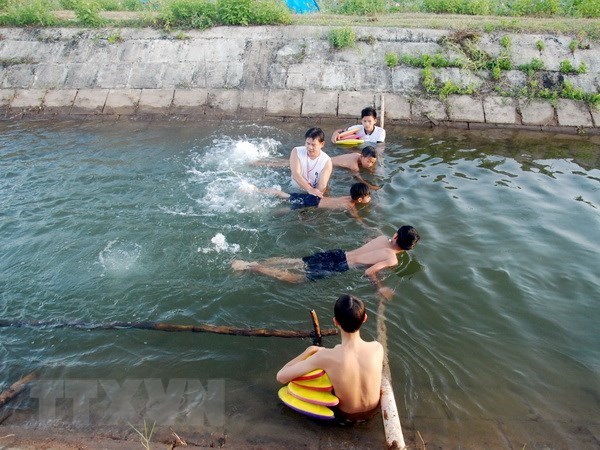Ministry, foreign partners work to prevent child drowning
 |
|
Children are given swimming instruction (Photo: VNA) |
The programme will be implemented by MOLISA, the World Health Organisation (WHO) and the Global Health Advocacy Incubator (GHAI) for five years. It will be funded with 2.4 million USD from the Bloomberg Philanthropies in the first two years.
The programme will feature two activities: supporting childcare providing measures, especially for under-5 children, at home and in communities and teaching swimming and other water safety skills for children aged 6 – 15.It will also help enhance local authorities’ capacity for running child drowning prevention activities.
The eight beneficiary provinces are Lao Cai, Yen Bai and Ninh Binh in the north; Quang Binh, Thanh Hoa and Dak Lak in the central region; and Dong Thap and Soc Trang in south.
The programme will be implemented based on proven interventions from other countries.
Meanwhile, the Bloomberg Philanthropies has been supporting safety interventions, including through community daycare centres and survival swimming instruction, since 2012.
The foundation chose Vietnam to expand these efforts because of the Government’s strong commitments and the seriousness of this problem in the country.
The MOLISA reported that about 2,000 children lost their lives to water in Vietnam each year between 2015 and 2017.
This figure, 10 times higher than in developed nations, has made Vietnam one of the countries with the highest rates of child deaths from drowning, according to Kelly Henning, head of the Bloomberg Philanthropies Public Health Programme.
MOLISA Deputy Minister Nguyen Thi Ha said drowning is a leading cause of child deaths from accidents in Vietnam.
Experts attributed this problem to limited public awareness of drowning risks and a shortage of childcare. While a number of children lack water safety skills, their surrounding environment has many drowning risks.
WHO Representative to Vietnam Kidong Park said the rate of child drowning deaths in Vietnam is particularly high, but this problem is completely avoidable. What needed to be done is inter-sectoral approach and strong engagement of communities, parents and childcare providers.
In the world, drowning claimed 360,000 lives every year, 90 percent in low- and middle-income countries. Half of the drowning cases happen in the Southeast Asian and Western Pacific regions.

